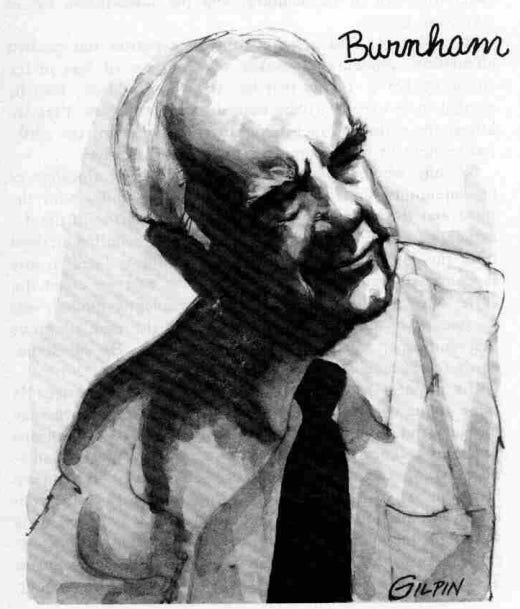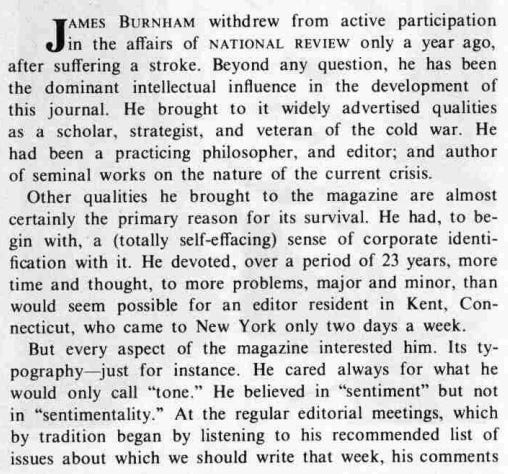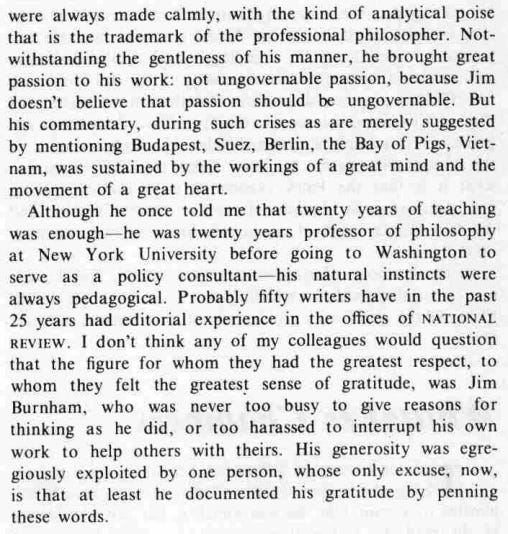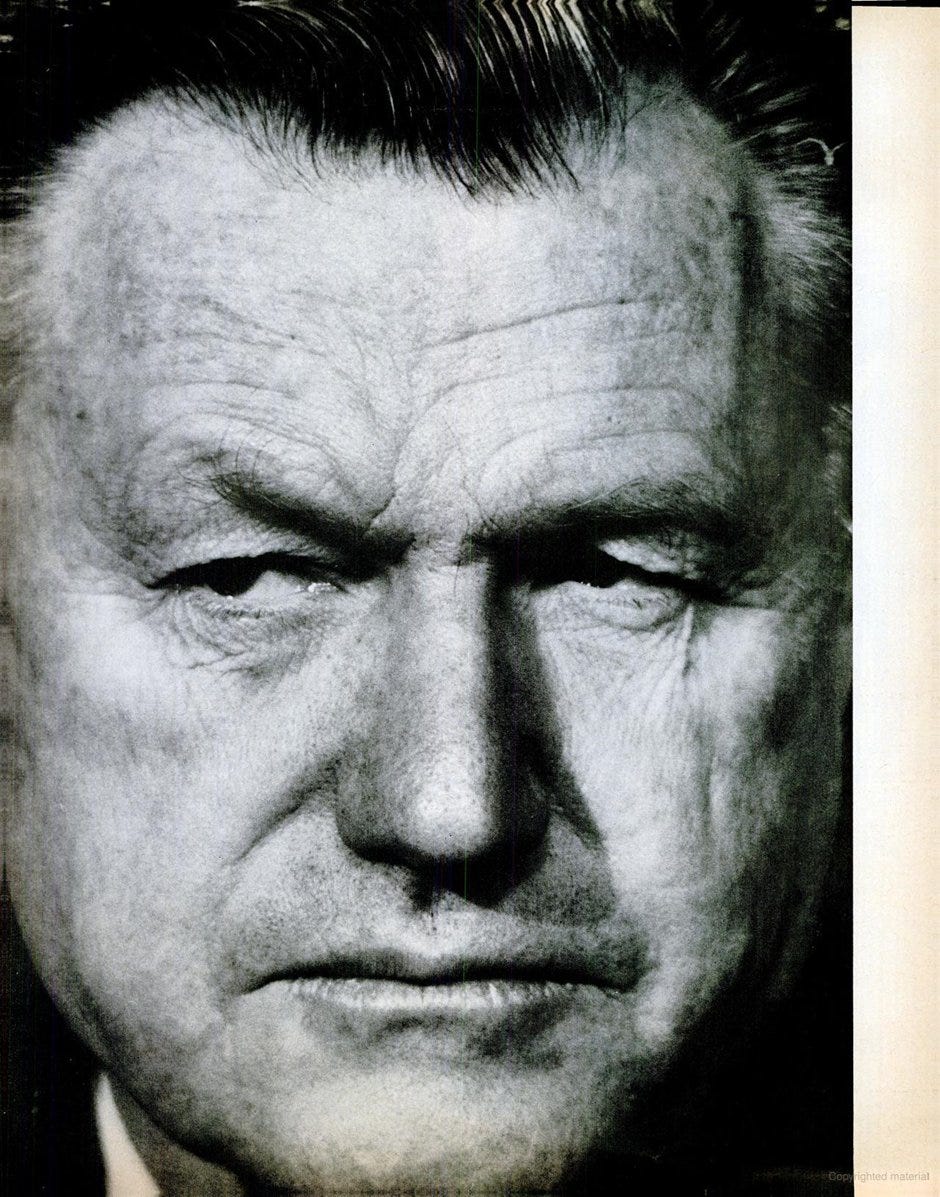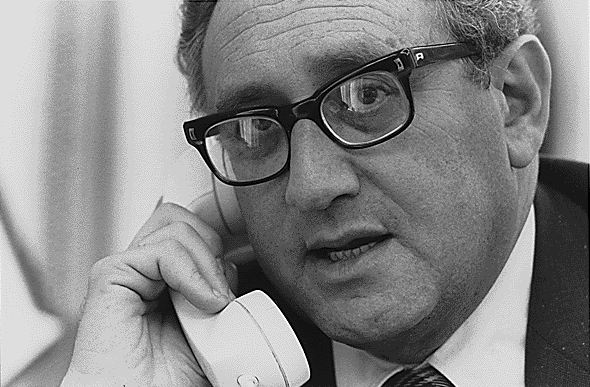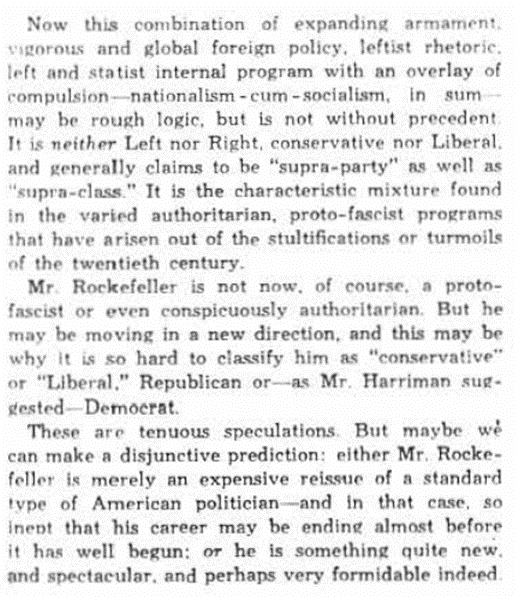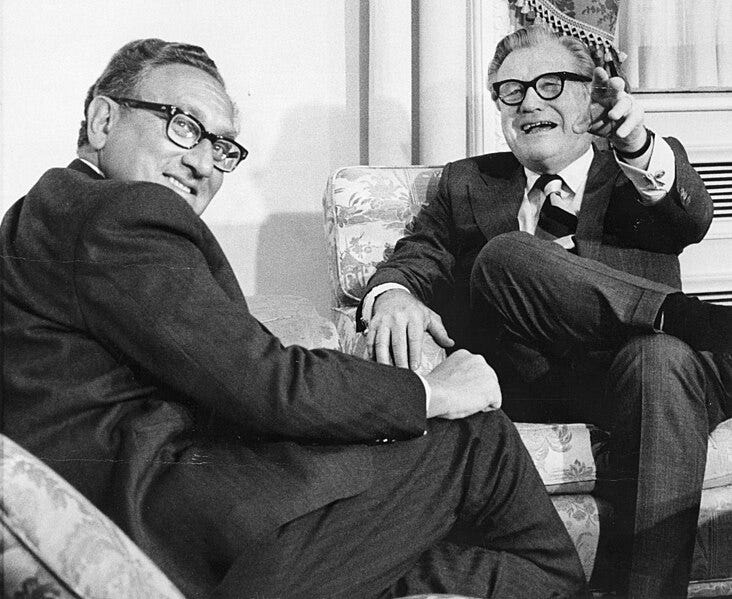Managers and Elites
Life as a Burnham Tragic
I am going to do two boorish things in this post. I am going to plug a piece I have already written, and I am going to recycle material from my Twitter account. A link between these venal sins is James Burnham.
My sense is that about half the people who study conservative intellectual history become enamored with James Burnham. There are a lot of James Burnham Tragics. I am one of them. Here’s William F. Buckley writing about him in 1980:
First thing to note is how fascinating Burnham’s life was. Buckley writes that Burnham left the professoriate to become a policy consultant. In reality, Burnham left to consult for the nascent intelligence community, focusing on psychological warfare. I will write more about this in the future - but there’s a nice allusion here, in that rather than policy work, Burnham worked for the Office of Policy Coordination, a delightfully named precursor organization to the CIA. Prior to this career, Burnham had been a leading American Trotskyist and bestselling author in his own right.
Second, Buckley did not kid about Burnham’s influence on National Review as a magazine. If anything, this is underselling it. For one thing, Burnham edited the entire magazine outright three months a year, freeing Buckley to ski and write books. For another, several other senior editors clashed with Burnham behind the scenes, including Willmoore Kendall (OK, that one doesn’t count, because Kendall clashed with everyone), Willi Schlamm, Frank Meyer, Bill Rickenbacker, Jr, and Brent Bozell. So among disputants with Burnham, we count NR's co-founder, as well as Buckley’s college mentor and his brother-in-law. Burnham’s closeness and influence over Buckley let him outlast them all. Burnham influenced NR’s style, tone, stories, look, contributors - the works.
Indeed, after Buckley’s father died in 1958, Buckley explicitly called Burnham his chief male influence and mentor.
You can read about Burnham’s extraordinary life here, or his rightward turn here. But where Burnham fits in right-wing intellectual history remains fascinating.
In some respects, Burnham had very direct influences on both right-wing ideas and policy (in particular through National Review) and on conservatism’s intellectual style (apocalyptic, negatively polarized).
In others, I think the Burnhamite influence is a minoritarian one. Weirdly, this cuts in both an extreme direction and a moderate one. Extreme in that the analytic frameworks Burnham deployed and especially the conclusions he reached through them underpin radical attacks on the post-1945 American order, a fact abundantly clear in some of his successors. Moderate in that Burnham’s personal politics and manner (and his editorial preferences) generally pointed toward the center. Maybe we could talk about Right Burnhamites, like Samuel Francis and Curtis Yarvin, and Left Burnhamites, like Ross Douthat and, I don’t know, Michael Lind?
I’m not going to push this line of thinking too far here, except to say that in general, Burnham’s stance on the institutional Republican Party, as well as his economic and cultural views made him a left-deviationist within National Review’s orbit. It’s part of why he ran afoul of so many rival editors there. The tension between Burnham’s catastrophism is something I want to develop in the future. Today I will use only one example of Burnham’s conservative perversity: his fondness for New York Governor (and briefly Vice President), the liberal Republican stalwart Nelson Rockefeller.
Rockefeller governed New York from 1959 to 1973. These were important years for conservative intellectuals, especially the late 1950s and early 1960s as men like Buckley, Russell Kirk, William Rusher, and others tried to stake out ideological conservatism as a respectable political position. Rockefeller represented the antithesis of the conservative struggle. Nationally and in the Governor’s Mansion, he stood for Big Government. Within the Republican Party, meant the enduring influence of the liberal Eastern Establishment. The National Review crowd weren’t even the most influential Republicans in New York. Wherever they wanted to go, Rockefeller was there.
In 1960 in particular, the GOP divided along an ideological spectrum. Barry Goldwater on the right, Rockefeller on the left, and Nixon (as always) in the middle. Despite losing the nomination battle, Rockefeller won such major concessions out of Nixon for the Republican platform in the “Treaty of Fifth Avenue” that Goldwater, normally a party regular, called it a “Munich” - comparing the episode to appeasing the Nazis.
Yet for some reason within the National Review world, Burnham came to be seen as holding a candle for their bête noire. Burnham’s colleagues considered him deluded, even ‘treasonous’ for his stance on Rocky. Bill Rusher, a conservative party activist and National Review’s publisher vented that Burnham “finds it so hard to force a criticism of Nelson Rockefeller through his teeth!”
I suspect some of this sympathy for Rockefeller has been exaggerated in the telling, probably by Burnham’s detractors to undercut his influence with Buckley. (One went to so far as to suggest Burnham might be a CIA plant sent to neuter conservatism from the inside) But there is something to it.
Burnham appreciated Rockefeller on class terms, as a Cold Warrior, and as an ideal elite. These categories mattered form Burnham analytically, but also personally.
The Princeton- and Oxford-educated Burnham was a well-heeled aesthete. In his memoir, Sidney Hook amusingly describes Burnham’s radical days where he would step away from polite society to meet revolutionaries while still in his dinner jacket. At NYU, where Burnham had taught, his specialty was aesthetics. He wrote sneeringly about some conservatives’ lack of artistic taste and appreciation for the aesthetic avant-garde.
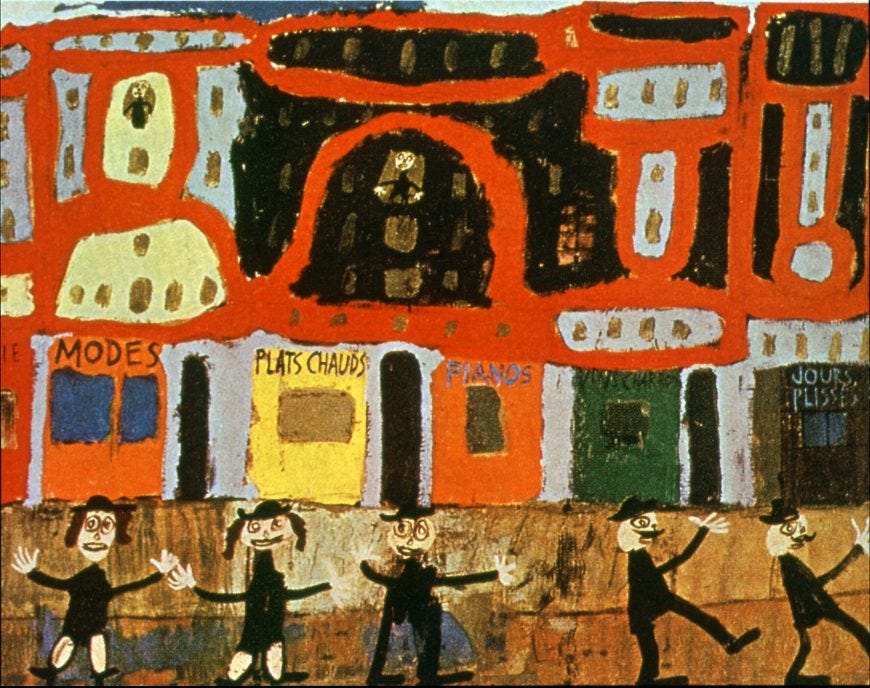
Rockefeller, meanwhile, notably patronized modern art. Taste and taste as an indicator of social class mattered, including to Burnham. While not “to the manner born,” he was nonetheless of the American elite. Rockefeller’s effortless class performance spoke to the genteel Burnham in a way the social climber Nixon (whom Burnham detested, although argued in favor of endorsing) and the frontier nouveau riche Goldwater could not.
The clearest instance I can find of Burnham endorsing Rockefeller is this, from 1960. Rockefeller’s hawkishness appealed to Burnham, who was the most strident Cold Warrior possible. Burnham called Rockefeller “harder than any rival of either party,” giving “the impression of being a hard sort of man.” One of the raps on Burnham is that he smuggled emotionalism into his ostentatiously logical thinking and writing. His admiration for Rockefeller’s Cold War fortitude is a good example: he weights Rockefeller higher because he takes the correct politico-moral stand. Rocky’s toughness extended to support for the sort of clandestine political warfare Burnham pioneered at the Office of Policy Coordination. This had a mixed track record, at best, so this is an underrated point of sympathy, I think.
One of the connective tissues between Burnham and Rockefeller was Rockefeller’s one-time advisor, Henry Kissinger. Burnham knew and respected Kissinger, perhaps because he saw him as a consummate example of the managerial class.
The managerial class is a key to understanding Burnham’s thought. Although Burnham broke with dialectical materialism, he never left materialism behind. More than his contemporaries, he thought in sociological terms of power relations, networks, and class interests. During his break with Trotsky, and with the Second World War going on, Burnham identified a world-historical shift. Five hundred years ago the bourgeois class had emerged, overthrown kings and lords, and created the ideology of liberalism to justify their rise. Now Burnham saw a new class on the rise. The managerial class of experts and technocrats, and with it, a new governing ideology that would replace liberalism.
The basic enunciation of this outlook is The Managerial Revolution from 1941. Shortly after, Burnham updated his outlook in a book I think is unusually revealing about Burnham’s preferred politics. The Machiavellians focuses intently on how, underneath all the misdirection and rhetoric, elites dominate politics. Despite this iron law of politics, Burnham argued that the systems of power could be structured in salutary way to protect civil liberties and the public good. This process included cultivating elites and counter-elites.
I think Burnham saw Nelson Rockefeller, a public-minded American aristocrat, as a purebred example of these elites. According to Burnham, Rockefeller’s toughness, his energetic nationalism-cum-socialism, his hardness and authority may be “something quite new, and spectacular, and perhaps very formidable indeed.” No wonder his colleagues thought he’d lost it.
In painful transition from the ruling bourgeois class to the ruling managerial class, a transition in elites was underway, Burnham argued. The old elite is unable to handle the new technological force. Many have turned away from ruling. They are unable either unwilling to absorb the new class of managerial elites, or to change themselves. They are experiencing an elite crisis of faith, and lack the will take and use authority, and so will be eclipsed.
Burnham, drawing on Gaetano Mosca, believed the characteristics of ruling elites were hard work, and ambition, as well as perspicacity, intuition about individual and mass psychology, strength of will and self-confidence. A new or renewed elite must include men who can control mass economies, labor force and supra-national organizations. Rockefeller, with his business, foundation, government and executive experience may have represented the ideal combination of manager and elite. Born into the role, he was ambitious, confident, tough-minded, and willing to engage with pure managers like Kissinger.
Burnham is often accused of power worship. George Orwell is his most famous accuser. Orwell misread or read more into - an important essay that identified Stalin as “Lenin’s Heir.” In any case, Burnham’s hyper-attention to power dynamics often read as endorsements, and at least one person who knew him thought Burnham did actually want to influence Rockefeller.
There are periodic waves of interest in James Burnham, precisely because while his thought was extreme - and often wrong in specific - he presaged important trends on the right. He has been called a proto-neocon and a proto-alt-righter. For thinkers on the Right, though, Burnham provides a right-wing materialist framework from which to approach politics. This is an important contribution to America’s right-wing intellectual history. It surfaces whenever thinkers present structural explanations for liberal dominance - especially when it is presented as the tendrils of a crypto-dominant class.
A softer version of this type of argument I have seen has focused on the so-called “professional-managerial class.” Less confident than Burnham’s managers, the PMC fits somewhere in the discourse between crypto-elite and the HR department enforcers of the real elite working to suppress the working class. Especially during and in the wake of COVID, this discourse gained traction on both the dissident Left and Right. It’s very online in the sense that I think JD Vance worries about the PMC. But it’s an idea with some real pedigree and some insight. It purports to unmask the seemingly benighted class of specialists and social workers as a class unto itself, with specific interests antagonistic to the working class. For some, challenging the PMC poses the possibility of a new, radical politics.
I had wondered about this for a long while (as a PMC member myself). Friends over at The Vital Center gave me the opportunity to excavate it in a piece for them. I argue the PMC discourse is unstable and ultimately untenable as a unifying politics, because the Right and Left deploy the concept - and oppose the PMC - for deeply contradictory reasons. If you’re interested, check it out, it features (a little bit) more Burnham.
What I am reading: Max Boot’s new biography of Reagan. Very readable, but too many adjectives.



